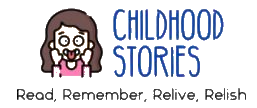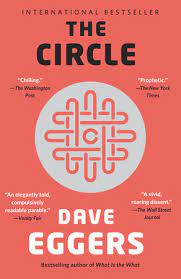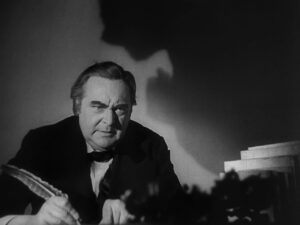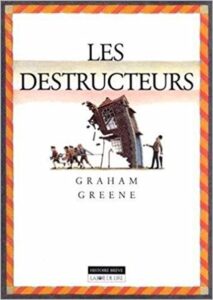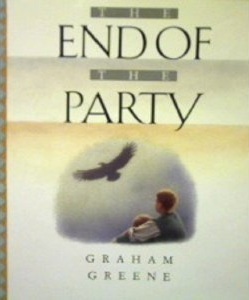50 best Short Stories about Technology
“Short Stories about Technology” is a captivating anthology that delves into the complex relationship between humanity and technological advancements. Through a collection of concise narratives, this anthology offers a rich exploration of the profound impact of technology on our lives, both present and future. Each story presents a unique perspective, delving into themes such as artificial intelligence, virtual reality, genetic engineering, and ethical dilemmas arising from the rapid progress of science and innovation.

Within these pages, readers will encounter thought-provoking tales that examine the blurred lines between human and machine, raising questions about identity, consciousness, and the essence of being. From cautionary tales of technology’s unintended consequences to inspiring visions of how it can enhance our lives, these stories traverse the entire spectrum of the human experience in a technologically driven world.
Through their brevity and depth, these short stories ignite the imagination and invite readers to contemplate the moral and societal implications of our ever-evolving technological landscape. “Short Stories about Technology” serves as a literary gateway into the thrilling and thought-provoking world of technology-focused fiction, offering a diverse and engaging exploration of the human condition in the face of technological advancement.
“1984” by George Orwell
“1984” by George Orwell is a dystopian novel that portrays a totalitarian society ruled by the Party, led by Big Brother. The story follows Winston Smith, a low-ranking member of the Party who begins to question the oppressive regime and its control over every aspect of people’s lives. Orwell’s novel delves into themes of surveillance, propaganda, and the manipulation of truth. The Party’s use of Newspeak, Thought Police, and constant surveillance through telescreens creates an atmosphere of fear and conformity.
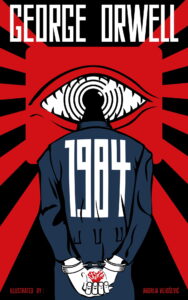
Through Winston’s rebellious acts and his relationship with Julia, “1984” explores the human spirit’s desire for freedom and individuality, even in the face of extreme oppression. Orwell’s powerful depiction of a society stripped of personal freedom and independent thought serves as a warning against the dangers of totalitarianism and the erosion of human rights.
“1984” remains a haunting and influential novel, reminding readers of the importance of protecting civil liberties, challenging authority, and preserving the truth in the face of oppressive regimes.
“Brave New World” by Aldous Huxley
“Brave new world” by Aldous Huxley is a dystopian novel that presents a chilling vision of a future society. Set in a world where genetic engineering and psychological conditioning are used to maintain social stability, the story follows Bernard Marx, an outsider who questions the conformity and artificial happiness of his society.
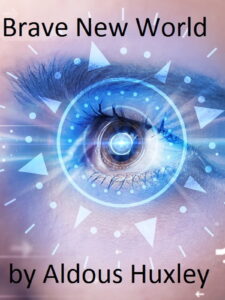
Huxley’s novel explores themes of individuality, the pursuit of pleasure, and the dangers of an all-encompassing state control. The society in “Brave New World” is characterized by the suppression of emotions, the eradication of personal relationships, and the pervasive influence of consumerism.
Through vivid storytelling and provocative ideas, Huxley challenges readers to consider the consequences of sacrificing personal freedom for societal harmony. “Brave New World” serves as a cautionary tale, highlighting the potential dehumanization and loss of individuality in a world driven by technological advancement and social engineering.
Huxley’s novel continues to be a powerful and relevant exploration of the impact of science, technology, and societal norms on human existence, urging readers to question the balance between individuality and societal control in the pursuit of a harmonious future.
“Neuromancer” by William Gibson
“Neuromancer” by William Gibson is a seminal cyberpunk novel that revolutionized the science fiction genre. Set in a dystopian future, the story follows Case, a washed-up computer hacker who is given a chance at redemption by a mysterious employer. Case is tasked with pulling off one last dangerous cybercrime, involving artificial intelligence, virtual reality, and powerful corporations.
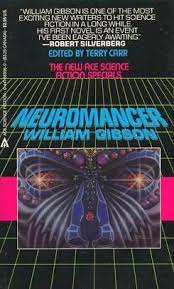
Gibson’s visionary prose explores themes of technology, identity, and the blurring boundaries between the real and the virtual. The novel introduced the concept of “cyberspace” and popularized the idea of a “matrix,” a global network of information that people can access through their minds.
With its gritty noir atmosphere and groundbreaking ideas, “Neuromancer” propelled cyberpunk into the mainstream and influenced countless works of fiction, film, and video games. Gibson’s vivid world-building and his exploration of the human relationship with technology continue to captivate readers, making “Neuromancer” a timeless and iconic masterpiece of science fiction.
“Snow Crash” by Neal Stephenson
“Snow Crash” by Neal Stephenson is a groundbreaking cyberpunk novel that combines elements of science fiction, dystopia, and satire. Set in a near-future society, the story follows Hiro Protagonist, a hacker and freelance delivery driver in a sprawling, corporatized world.
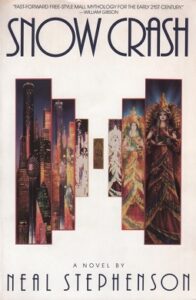
Stephenson’s vivid and intricate narrative weaves together themes of virtual reality, linguistics, and corporate power. In this world, a new drug called Snow Crash poses a threat to individuals’ minds, simultaneously infecting and controlling them.
As Hiro delves deeper into the mystery of Snow Crash, he uncovers a vast conspiracy that threatens the fabric of society itself. With its fast-paced action, sharp social commentary, and exploration of the impact of technology on humanity, “Snow Crash” stands as a seminal work in the cyberpunk genre.
“The Matrix” by Thomas Anderson (THE MOVIE!!!!)
Enter a mind-bending reality where humans are unknowingly trapped in a simulated world created by machines. “The Matrix” explores philosophical themes of perception, reality, and the consequences of unchecked technological power. Thomas Anderson, known as Neo, is pulled into a rebellion against the machines, blurring the boundaries between human and artificial intelligence.
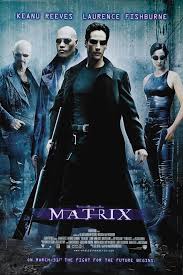
With its iconic imagery, exhilarating action sequences, and existential ponderings, “The Matrix” challenges our understanding of existence and raises profound questions about the nature of reality in an increasingly technologically driven world.
“The Martian” by Andy Weir
“The Martian” by Andy Weir is a gripping science fiction novel that follows the harrowing survival story of astronaut Mark Watney. After being left behind and presumed dead by his crew on a mission to Mars, Watney must rely on his resourcefulness, scientific expertise, and indomitable spirit to stay alive on the desolate planet.
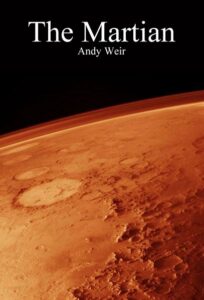
Weir’s novel combines elements of thrilling adventure, scientific problem-solving, and a touch of humor as Watney faces numerous challenges, from growing food to overcoming communication obstacles. Through Watney’s first-person narration, readers witness his tenacity, resilience, and unwavering determination to return home.
“The Martian” showcases meticulous scientific research and attention to detail, making it feel grounded and realistic. Weir’s ability to balance the technical aspects of surviving on Mars with the emotional journey of the protagonist captivates readers from start to finish.
“The Circle” by Dave Eggers
“The Circle” by Dave Eggers is a thought-provoking dystopian novel that delves into the dark side of technology and surveillance culture. The story revolves around Mae Holland, a young woman who lands a job at The Circle, a powerful tech company that promotes transparency and connectivity. As Mae becomes immersed in the company’s all-encompassing digital world, she begins to question the implications of constant surveillance, loss of privacy, and the erosion of personal autonomy.
The Circle by Dave EggersEggers skillfully explores themes of corporate control, the trade-off between convenience and privacy, and the dangers of unchecked technological advancement. Through Mae’s journey, the novel forces readers to confront the ethical dilemmas inherent in our hyperconnected society. “The Circle” serves as a cautionary tale, reminding us of the potential consequences when personal freedoms and privacy are sacrificed in the name of progress and social connectivity.
“Ready Player One” by Ernest Cline
“Ready Player One” by Ernest Cline is an exhilarating science fiction novel that transports readers into a virtual reality world known as the OASIS. Set in a dystopian future where the real world is plagued by social and environmental decay, the story follows Wade Watts, a teenager who embarks on a quest for an Easter egg hidden within the OASIS by its late creator, James Halliday.
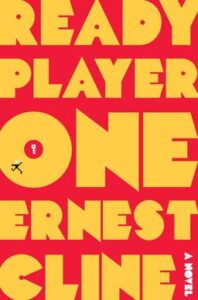
Cline’s novel is a nostalgic tribute to 1980s pop culture, filled with references to video games, movies, and music of the era. As Wade navigates virtual challenges and encounters fellow competitors, he must confront corporate greed and the relentless pursuit of power.
“Ready Player One” explores themes of escapism, friendship, and the balance between virtual and real-world experiences. Cline’s vivid descriptions and fast-paced storytelling create a thrilling adventure that resonates with readers, inviting them to ponder the impact of technology on society and the importance of human connection in an increasingly digital age.
“Dune” by Frank Herbert
“Dune” by Frank Herbert is a monumental science fiction novel that immerses readers in a richly detailed and expansive universe. Set in a distant future where interstellar travel and political intrigue abound, the story follows Paul Atreides, the young heir of House Atreides, as he navigates the treacherous desert planet of Arrakis, also known as Dune.
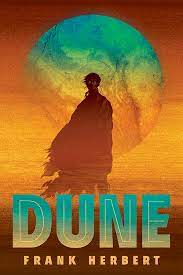
Herbert weaves a complex tapestry of power struggles, ecological concerns, and mystical elements. As Paul embraces his destiny as a messianic figure among the native Fremen people, the novel explores themes of religion, resource exploitation, and the nature of prophecy. Herbert’s prose combines deep philosophical introspection with pulse-pounding action, creating an engrossing narrative that keeps readers enthralled from beginning to end.
“Dune” stands as a timeless masterpiece, revered for its intricate world-building, multidimensional characters, and exploration of complex themes. It continues to captivate readers with its epic scope, unforgettable landscapes, and thought-provoking examination of power and humanity.
“Ender’s Game” by Orson Scott Card
“Ender’s Game” by Orson Scott Card is a riveting science fiction novel that follows the story of Andrew “Ender” Wiggin, a young boy recruited into a rigorous military training program to defend Earth against an alien threat. Ender possesses exceptional strategic skills and quickly rises through the ranks, facing intense challenges and moral dilemmas along the way.
Card skillfully explores themes of war, leadership, and the consequences of manipulation. As Ender grapples with the weight of his responsibilities and the blurred lines between right and wrong, the novel delves into the complexities of human nature and the sacrifices made in the name of survival.
“Ender’s Game” captivates readers with its fast-paced plot, intricate world-building, and complex characters. It delves into profound questions about empathy, the nature of power, and the inherent cost of victory. As one of the most celebrated science fiction novels, “Ender’s Game” continues to resonate with readers, provoking thoughtful reflection on the morality of warfare and the boundaries of human potential.
“Fahrenheit 451” by Ray Bradbury
“Fahrenheit 451” by Ray Bradbury is a dystopian novel that presents a chilling vision of a future society where books are banned and intellectual curiosity is suppressed. The story follows Guy Montag, a fireman whose job is to burn books instead of extinguishing fires. As Montag begins to question the oppressive regime and the meaninglessness of his existence, he embarks on a dangerous journey of self-discovery and rebellion.
Bradbury’s powerful prose explores themes of censorship, conformity, and the importance of literature in preserving humanity’s intellectual and emotional growth. “Fahrenheit 451” serves as a stark warning about the dangers of a society driven by mindless entertainment and the suppression of free thought. With its thought-provoking narrative and poignant social commentary, the novel continues to resonate, urging readers to cherish knowledge, individuality, and the power of critical thinking.
“The Hitchhiker’s Guide to the Galaxy” by Douglas Adams
“The Hitchhiker’s Guide to the Galaxy” by Douglas Adams is a whimsical and humorous science fiction novel that takes readers on a wild intergalactic adventure. The story follows the misadventures of Arthur Dent, an ordinary Earthling who finds himself unexpectedly traveling through space after the destruction of his home planet. Guided by the eccentric and indispensable Hitchhiker’s Guide, Arthur encounters a range of peculiar characters, including the eternally optimistic Ford Prefect, the two-headed Zaphod Beeblebrox, and the intelligent and irritable Marvin the Paranoid Android.
Through Adams’ sharp wit and satirical commentary, the novel explores profound questions about the meaning of life, the nature of the universe, and the absurdities of human existence. Filled with imaginative settings, clever wordplay, and comedic escapades, “The Hitchhiker’s Guide to the Galaxy” is a beloved and hilarious romp through space that has captivated readers for decades.
“The Time Machine” by H.G. Wells
“The Time Machine” by H.G. Wells is a classic science fiction novel that takes readers on an extraordinary journey through time. The story follows an unnamed Time Traveller who invents a machine capable of transporting him into the future. From his initial leap to the distant future, the Time Traveller witnesses the evolution of humanity and encounters two distinct species—the Eloi, who live in idyllic simplicity, and the Morlocks, who dwell underground and prey upon the Eloi.
Wells masterfully combines adventure, social commentary, and speculation on the fate of humanity. Through the Time Traveller’s experiences, he examines themes of class struggle, societal decay, and the consequences of unchecked progress. “The Time Machine” is a thought-provoking exploration of the human condition and the potential implications of the passage of time.
“The Foundation Trilogy” by Isaac Asimov
“The Foundation Trilogy” by Isaac Asimov is a groundbreaking science fiction series composed of three novels: “Foundation,” “Foundation and Empire,” and “Second Foundation.” Set in a vast galactic empire on the brink of collapse, the series explores the concept of psychohistory, a science that predicts the future behavior of large populations. Asimov weaves a complex narrative of political intrigue, cultural transformation, and the struggle for power.
The trilogy follows the efforts of Hari Seldon and his Foundation, a group dedicated to preserving knowledge and guiding humanity through the impending dark ages. With its epic scope, intricate plotting, and insightful exploration of societal evolution, “The Foundation Trilogy” remains a seminal work in the genre of science fiction.
“Do Androids Dream of Electric Sheep?” by Philip K. Dick
“Do Androids Dream of Electric Sheep?” by Philip K. Dick is a science fiction novel that takes place in a post-apocalyptic future where Earth has been devastated by war and radiation. The story follows Rick Deckard, a bounty hunter tasked with “retiring” rogue androids that are indistinguishable from humans.
As Deckard grapples with his own humanity and questions the nature of empathy, the novel explores themes of identity, artificial intelligence, and the blurred line between human and machine. Dick’s evocative prose and philosophical musings make this novel a profound exploration of what it means to be human in a world where the boundaries of reality and perception are constantly shifting.
“I, Robot” by Isaac Asimov
“I, Robot” by Isaac Asimov is a seminal science fiction collection of short stories that explores the relationship between humans and robots. Asimov introduces his famous Three Laws of Robotics, which govern the behavior of these artificial beings. Through a series of interconnected narratives, he examines the ethical, moral, and social implications of advanced robotics.
With his signature blend of thought-provoking ideas and compelling storytelling, Asimov delves into themes of technology, artificial intelligence, and humanity’s quest to understand and coexist with intelligent machines. “I, Robot” remains a cornerstone of science fiction, offering timeless insights into the potential future of human-robot interaction.
“The Handmaid’s Tale” by Margaret Atwood
“The Handmaid’s Tale” by Margaret Atwood is a haunting dystopian novel that paints a harrowing picture of a society called Gilead. Set in a future where women’s rights have been severely stripped away, it follows the story of Offred, a Handmaid assigned to bear children for the ruling class. Atwood’s masterful storytelling delves into themes of gender inequality, oppression, and the manipulation of power. With its stark portrayal of a world where individual freedom is suppressed and control is absolute, “The Handmaid’s Tale” serves as a chilling cautionary tale that continues to resonate with readers, urging us to safeguard our own liberties.
Through Offred’s narrative, Atwood explores the resilience of the human spirit and the potential consequences of societal complacency, reminding us of the importance of vigilance and the fight for fundamental rights in the face of oppression.
“The Dispossessed” by Ursula K. Le Guin
“The Dispossessed” is a science fiction novel penned by Ursula K. Le Guin. Set in the same universe as her acclaimed “Hainish Cycle,” it tells the captivating tale of Shevek, a physicist from the anarchist society of Anarres. Shevek, driven by his thirst for knowledge and the desire for a more just society, embarks on a journey to the neighboring planet Urras, a capitalist world.
Le Guin skillfully explores themes of politics, social structures, and the search for freedom as Shevek confronts the complexities of both societies. With its insightful exploration of contrasting ideologies, “The Dispossessed” offers a profound reflection on the human condition and the possibilities of a utopian society.
“The Three-Body Problem” by Cixin Liu
“The Three-Body Problem” is a science fiction novel written by Chinese author Cixin Liu. Set against the backdrop of China’s Cultural Revolution and the present day, it follows the story of Ye Wenjie, a physicist who becomes involved in a secret government project. As humanity faces the threat of an alien civilization from the Trisolar System, the novel explores themes of technology, philosophy, and the nature of human existence.
Liu’s intricate storytelling and imaginative world-building make “The Three-Body Problem” a thought-provoking and gripping read, capturing the complexities of human nature and the challenges of encountering an extraterrestrial civilization. This award-winning novel is the first installment of the acclaimed Remembrance of Earth’s Past trilogy.
“Frankenstein” by Mary Shelley
“Frankenstein” by Mary Shelley is a Gothic masterpiece that delves into themes of ambition, creation, and the moral implications of scientific discovery. The novel follows Victor Frankenstein, a young scientist who, driven by his desire for knowledge and power, creates a creature assembled from various body parts. However, upon bringing his creation to life, Frankenstein is horrified by its monstrous appearance and abandons it.
Shelley’s narrative raises profound questions about responsibility, societal rejection, and the consequences of playing god. “Frankenstein” serves as a cautionary tale, exploring the dangers of unchecked ambition and the potential for scientific innovation to go awry. With its rich philosophical underpinnings and the timeless struggle between creator and creation, Shelley’s novel continues to resonate with readers, sparking discussions on the boundaries of science and the moral implications of our actions.
“The War of the Worlds” by H.G. Wells
“The War of the Worlds” by H.G. Wells is a seminal science fiction novel that depicts a catastrophic invasion of Earth by Martians. The story follows an unnamed narrator as they witness the relentless and devastating assault of the Martian invaders, who utilize advanced weaponry and deadly tripods. Wells masterfully portrays the fear and chaos that ensue as humanity struggles to survive against an alien foe. Through vivid descriptions and captivating storytelling, Wells explores themes of imperialism, the vulnerability of humanity, and the clash between advanced civilizations.
“The War of the Worlds” remains a timeless classic, provoking contemplation on humanity’s place in the universe and the consequences of exploration beyond our own planet. With its thrilling narrative and thought-provoking themes, Wells’ novel continues to captivate readers and inspire countless adaptations in various forms of media.
“The Invisible Man” by H.G. Wells
“The Invisible Man” by H.G. Wells is a classic science fiction novel that explores the dark consequences of invisibility and unchecked power. The story follows a scientist named Griffin who discovers the secret of invisibility but becomes consumed by his newfound ability. As Griffin struggles to maintain his sanity and evade detection, he descends into madness and uses his invisibility for nefarious purposes.
Wells skillfully explores themes of scientific ethics, morality, and the dangers of unchecked ambition. “The Invisible Man” serves as a cautionary tale, reminding readers of the potential dangers when power falls into the wrong hands and the importance of ethical responsibility in scientific exploration. With its enduring impact on popular culture and its exploration of human nature, Wells’ novel remains a captivating and thought-provoking read.
“The Andromeda Strain” by Michael Crichton
The Andromeda Strain” by Michael Crichton is a gripping science fiction thriller that explores the terrifying consequences of a deadly extraterrestrial microorganism unleashed on Earth. The story unfolds as a team of scientists races against time to contain and understand the mysterious microorganism, known as Andromeda, before it wipes out humanity. Crichton’s meticulous attention to scientific detail and his ability to build suspense make “The Andromeda Strain” a thrilling and realistic portrayal of the potential dangers of unknown pathogens.
This thought-provoking novel raises questions about the fragility of human existence and the ethical implications of scientific advancements. With its fast-paced narrative and compelling characters, “The Andromeda Strain” remains a classic in the science fiction genre, reminding readers of the delicate balance between progress and the unforeseen risks it may bring.
“Feed” by M.T. Anderson
“Feed” by M.T. Anderson is a compelling and chilling young adult novel set in a dystopian future where technology has infiltrated every aspect of daily life. The story follows Titus, a teenager living in a society where individuals are constantly connected to a digital “feed” that influences their thoughts, desires, and consumer choices. As Titus navigates his world, he begins to question the true cost of this technology and the loss of genuine human connection.
Anderson’s thought-provoking narrative explores themes of consumerism, information overload, and the dehumanizing effects of technology. “Feed” serves as a stark warning about the potential dangers of an overly mediated and technology-dependent society, urging readers to reflect on the importance of critical thinking, personal agency, and the preservation of authentic human experiences.
“The Diamond Age” by Neal Stephenson
“The Diamond Age” by Neal Stephenson is a visionary science fiction novel that transports readers to a future world where nanotechnology shapes society and education. The story centers around Nell, a young girl who receives a highly advanced interactive book called the Young Lady’s Illustrated Primer. As Nell explores the book’s interactive capabilities, she embarks on a journey of self-discovery and adventure.
Stephenson’s narrative weaves together themes of education, social inequality, and the transformative power of ideas. With its intricate world-building and exploration of the clash between tradition and technological progress, “The Diamond Age” offers a thought-provoking reflection on the potential and pitfalls of a technologically advanced future. It is a captivating and imaginative work that showcases Stephenson’s ability to blend science fiction with social commentary.
“Pattern Recognition” by William Gibson
“Pattern Recognition” by William Gibson is a gripping and prescient science fiction novel that delves into the world of global marketing, technology, and cultural trends. The story follows Cayce Pollard, a young woman with a unique ability to detect patterns and trends in consumer culture. As she is hired to track down the mysterious origin of a series of video clips, Cayce becomes embroiled in a global conspiracy that challenges her perceptions of reality.
Gibson’s masterful prose and sharp social commentary make “Pattern Recognition” a compelling exploration of identity, the power of branding, and the impact of technology on our lives. With its blend of intrigue, cyberculture, and cutting-edge ideas, this novel is a must-read for fans of thought-provoking science fiction.
“Hyperion” by Dan Simmons
“Hyperion” by Dan Simmons is an epic and mind-bending science fiction novel that takes readers on an unforgettable journey through time, space, and the depths of human consciousness. Set in a future where humanity has colonized numerous worlds, the story follows a group of pilgrims on a treacherous and enigmatic quest to the planet Hyperion. Simmons skillfully weaves together multiple narratives, each exploring the personal stories of the pilgrims and the mysteries surrounding the time-traveling Shrike, a terrifying and enigmatic creature.
“Hyperion” is a masterful blend of science fiction, mythology, and philosophical exploration, delving into themes of destiny, sacrifice, and the nature of humanity. With its richly imagined universe and compelling characters, this novel captivates readers with its intricate plot twists and profound reflections on the human condition.
“The Windup Girl” by Paolo Bacigalupi
The Windup Girl by Paolo Bacigalupi is a mesmerizing and thought-provoking science fiction novel set in a post-apocalyptic world plagued by environmental devastation and political turmoil. The story takes place in Bangkok, where bioengineered beings called “windups” are used as a source of labor and entertainment. Bacigalupi weaves together multiple narratives, including that of Emiko, a windup girl struggling to find her place in a society that despises her.
Through richly detailed world-building and complex characters, Bacigalupi explores themes of power, exploitation, and the consequences of unchecked technological advancement. “The Windup Girl” is a compelling and cautionary tale that urges readers to contemplate the ethical implications of our actions and the potential consequences of tampering with nature.
“Altered Carbon” by Richard K. Morgan
“Altered Carbon” by Richard K. Morgan is a gritty and futuristic science fiction novel that explores a world where consciousness can be transferred between bodies, known as sleeves. Set in a society where immortality is possible for the wealthy elite, the story follows Takeshi Kovacs, a former soldier turned private investigator, as he is hired to solve a murder mystery that spans multiple sleeves and corrupt power structures.
Morgan’s narrative is a thrilling combination of hard-boiled detective fiction and cyberpunk elements, with a thought-provoking exploration of identity, morality, and the commodification of human life. “Altered Carbon” is a gripping and action-packed novel that immerses readers in a morally complex and technologically advanced future.
“The Road” by Cormac McCarthy
“The Road” by Cormac McCarthy is a haunting and post-apocalyptic novel that delves into the depths of human resilience and the unbreakable bond between a father and son. Set in a desolate and ravaged world, the story follows the journey of a nameless father and his young son as they navigate a landscape stripped of civilization.
McCarthy’s stark prose reflects the bleakness of the world they traverse, while also capturing the profound love and determination that drives their survival. “The Road” is a powerful meditation on hope, morality, and the human spirit in the face of unimaginable adversity. It serves as a reminder of the enduring power of love and the lengths we would go to protect those we hold dear, even in the darkest of times.
“Ancillary Justice” by Ann Leckie
In “Ancillary Justice,” Ann Leckie reveals the groundbreaking science fiction plot in her novel that subverts traditional gender and identity norms in a vast and politically charged universe. The story follows Breq, a former warship AI now inhabiting a single human body, on a quest for vengeance against the oppressive ruler known as the Lord of the Radch. Leckie’s narrative explores themes of identity, power, and the blurred lines between artificial intelligence and humanity.
With its thought-provoking exploration of gender fluidity and social hierarchies, “Ancillary Justice” challenges conventions and offers a fresh perspective on the genre. Leckie’s masterful storytelling and intricate world-building make this novel a must-read for fans of thought-provoking and inclusive science fiction.
“The City & The City” by China Miéville
“The City & The City” by China Miéville is a captivating and genre-bending novel that combines elements of detective fiction, speculative fiction, and political allegory. Set in the twin cities of Besźel and Ul Qoma, the story follows Inspector Tyador Borlú as he investigates a murder that defies the strict boundaries between the cities. Miéville masterfully explores themes of perception, identity, and the power of collective belief.
Through his skillful prose and intricate world-building, he creates a unique and immersive reading experience, challenging readers to question the nature of reality and the ways in which societies construct and enforce boundaries. “The City & The City” is a compelling and thought-provoking exploration of the complexities of human perception and the influence of societal norms on our understanding of the world around us.
“Player Piano” by Kurt Vonnegut
“Player Piano” by Kurt Vonnegut is a thought-provoking and satirical science fiction novel that offers a critique of the dehumanizing effects of technology and industrialization. Set in a dystopian future where machines have replaced human labor, the story follows protagonist Dr. Paul Proteus, a brilliant engineer caught in a society where people are ranked based on their usefulness to the automated system.
Vonnegut skillfully weaves a narrative that examines themes of societal conformity, the loss of individual agency, and the struggle to find meaning and purpose in a world dominated by soulless efficiency. With his trademark wit and social commentary, Vonnegut delivers a compelling and cautionary tale that invites readers to reflect on the human cost of progress and the importance of preserving our humanity in the face of technological advancement.
“The Moon Is a Harsh Mistress” by Robert A. Heinlein
“The Moon Is a Harsh Mistress” by Robert A. Heinlein is an influential science fiction novel that transports readers to a lunar colony known as Luna. The story follows the protagonist Manuel Garcia “Mannie” O’Kelly-Davis, a computer technician who becomes embroiled in a rebellion against Earth’s rule. Heinlein weaves a tale of political intrigue, revolution, and the fight for independence, all set against the backdrop of a harsh lunar environment.
With its themes of liberty, individualism, and the power of human determination, “The Moon Is a Harsh Mistress” stands as a classic exploration of societal structures and the human spirit’s resilience in the face of oppression.
“The Quantum Thief” by Hannu Rajaniemi
“The Quantum Thief” by Hannu Rajaniemi is a mind-bending and exhilarating science fiction novel that transports readers to a future where technology and the human mind merge in unexpected ways. Set in a post-human society, the story follows the enigmatic thief Jean le Flambeur as he navigates a complex world of virtual realities, interstellar heists, and quantum mysteries.
Rajaniemi’s dazzling prose and imaginative concepts propel readers into a world where reality is mutable and identity is fluid. With its intricate plot twists, intricate world-building, and a cast of fascinating characters, “The Quantum Thief” is a tour de force that challenges perceptions of time, memory, and what it means to be human. This thought-provoking and exhilarating novel will captivate readers who crave cutting-edge science fiction and philosophical explorations of the nature of consciousness and existence.
“Revelation Space” by Alastair Reynolds
“Revelation Space” by Alastair Reynolds is a mind-bending science fiction novel that takes readers on a thrilling journey through a vast and intricate universe. Set in a future where humanity has colonized distant star systems, the story follows a diverse cast of characters as their paths intertwine amidst a backdrop of ancient mysteries, interstellar conflicts, and the relentless pursuit of truth.
Reynolds weaves a complex narrative that seamlessly combines hard science fiction concepts with thought-provoking philosophical themes. With its richly developed world-building, compelling characters, and meticulous attention to scientific detail, “Revelation Space” immerses readers in a breathtaking exploration of the mysteries of deep space and the implications of advanced technology on the human condition. This gripping space opera will captivate fans of intricate plotting, grand cosmic vistas, and profound existential questions.
“Lock In” by John Scalzi
“Lock In” by John Scalzi is a thrilling science fiction novel that takes readers into a near-future world where a pandemic called Haden’s Syndrome has left millions of people “locked in” their own bodies. These individuals are awake and aware but unable to move or interact with the physical world. Enter rookie FBI agent Chris Shane, who is a Haden, able to navigate the world through an advanced neural interface.
When a suspicious murder case involving Hadens emerges, Chris is thrust into a high-stakes investigation that uncovers a web of conspiracy and deceit. Scalzi’s gripping storytelling, sharp wit, and intricate world-building combine to create a riveting tale that explores themes of identity, ethics, and the boundaries of technology. “Lock In” is a thought-provoking and fast-paced read that keeps readers on the edge of their seats until the final page.
“The Lathe of Heaven” by Ursula K. Le Guin
“The Lathe of Heaven” by Ursula K. Le Guin is a mesmerizing science fiction novel that explores the power of dreams and the delicate balance between imagination and reality. Set in a dystopian future, the story follows George Orr, a man with the ability to alter reality through his dreams. As George’s dreams increasingly shape the world, he seeks help from a psychiatrist named William Haber, unaware of the consequences that lie ahead.
Le Guin’s elegant prose and thought-provoking narrative delve into profound questions about the nature of existence, the ethics of manipulating reality, and the intricate connections between dreams and the waking world. “The Lathe of Heaven” is a captivating exploration of the human psyche, blending philosophical depth with Le Guin’s signature storytelling mastery.
“Red Mars” by Kim Stanley Robinson
“Red Mars” by Kim Stanley Robinson is a groundbreaking science fiction novel that takes readers on an epic journey to the red planet. Set in a not-too-distant future, Robinson presents a meticulously researched and scientifically grounded vision of the colonization and terraforming of Mars.
Through intricate world-building and a diverse cast of characters, the novel explores the political, social, and environmental challenges that arise as humans strive to transform an alien world into a new home. “Red Mars” captivates readers with its immersive storytelling, thought-provoking exploration of humanity’s relationship with the cosmos, and its powerful portrayal of the triumphs and tribulations of pioneering a new frontier.
Conclusion
Short stories about technology offer glimpses into possible futures and provoke important reflections on the consequences of our technological advancements. From dystopian societies to virtual realities, these narratives challenge us to consider the ethical, social, and psychological impacts of the ever-evolving relationship between humanity and machines. Embark on these thought-provoking journeys and explore the intricate tapestry of technology woven within these captivating short stories.
